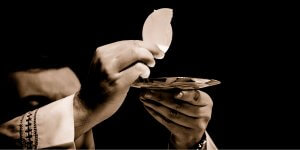

Pride argued that such a lifestyle was Biblically required of all married Christian women but that most Christian women had been duped by feminism, including in their acceptance of birth control.Īs the basis for her arguments, Pride selected numerous Bible verses to lay out what she felt was the Biblical role of women. In her book, Pride chronicled her journey away from feminist and anti-natalist ideas of happiness, within which she had lived as an activist before her Christian conversion in 1977, toward her discovery of happiness surrounding what she felt was the Biblically mandated role of wives and mothers as bearers of children and workers in the home under the authority of their husband. The movement was sparked after the 1985 publication of Mary Pride’s book The Way Home: Beyond Feminism, Back to Reality.

It was within that context that Quiverfull as a modern Christian movement began to emerge. In the decades that followed, birth control became gradually accepted among Protestants, even among the most conservative evangelicals, however was rejected by the Catholic Church and the Amish. Then in 1930 the Anglican Church issued a statement permitting birth control "when there is a clearly felt moral obligation to limit or avoid parenthood and where there is a morally sound reason for avoiding complete abstinence." Coinciding, a feminist movement which began about a decade earlier under American Birth Control League (which eventually became Planned Parenthood) founder Margaret Sanger emerged to welcome modern birth control as an important tool to improve the lives, health, and self-empowerment levels of women. As birth control methods advanced during the late 19th and early 20th centuries, most Christian movements issued official statements against their use. Initially, all Christian movements opposed the use of birth control. Some of the beliefs held among Quiverfull adherents have been held among various Christians during prior eras of history. 6.4 User groups, forums, blogs, other conversations.


 0 kommentar(er)
0 kommentar(er)
